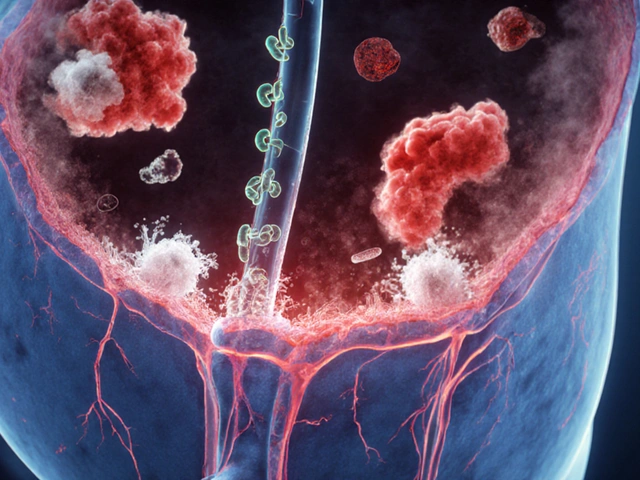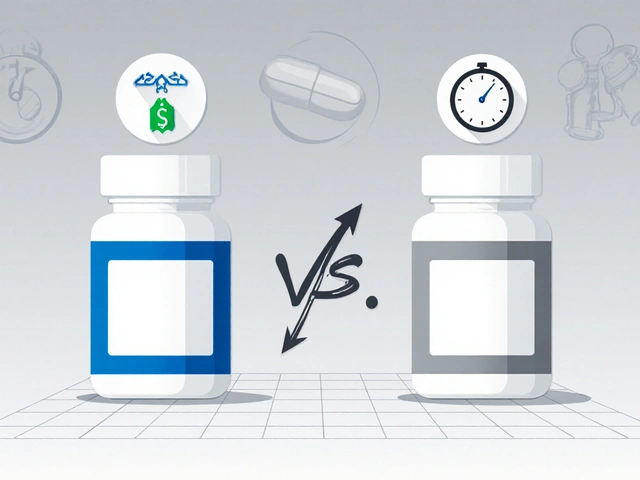Understanding the Common Cold
As everyone knows, having a runny nose is often the first sign that you're coming down with a common cold. You feel that irritating tickle in your nose, and soon enough, you're reaching for tissues every few minutes. This symptom is typically not a cause for concern, as it's usually your body's way of flushing out cold or flu viruses, allergens, or irritants. The mucus produced by your body helps to trap these invaders and move them out of your body, preventing them from spreading to others and causing an infection.
When a Runny Nose isn’t Just a Cold
However, there are times when a runny nose could indicate a more serious health problem. For instance, a persistent runny nose, especially when it's accompanied by other symptoms such as facial pain, could indicate sinusitis, a condition characterized by the inflammation or swelling of the sinuses. This often happens as a result of an infection, and if left untreated, could lead to complications such as meningitis or brain abscess.
Runny Nose and Allergies
Allergies are another common reason for a runny nose. If you find yourself sneezing and your nose running around the same time every year, you might be dealing with seasonal allergies. These are often triggered by pollens from trees, grasses, or weeds, or spores from fungi and molds. On the other hand, if your symptoms are present all year, you could be allergic to something in your environment, such as dust mites, pet dander, or mold. While allergies are not life-threatening, they can significantly affect your quality of life and lead to complications like sinusitis or asthma if not properly managed.
Chronic Rhinitis and its Implications
Chronic rhinitis, a long-term swelling of the inner part of the nose, can also cause a constant runny nose. This condition can be triggered by environmental irritants such as smoke and pollution, or by certain medications. It can also be a result of hormonal changes or immune system problems. It's important to get a diagnosis and appropriate treatment for chronic rhinitis, as it can lead to other health problems such as sleep disorders, difficulty concentrating, and even ear infections.
Unusual Reasons for a Runny Nose
Sometimes, a runny nose may be a symptom of a more serious, albeit rare, condition. For example, a clear, watery nasal discharge may be a sign of a cerebrospinal fluid leak, a condition in which the fluid that surrounds the brain leaks into the nose and sinuses. This can occur as a result of trauma, surgery, or even without a known cause. It's a serious condition that requires immediate medical attention.
When to See a Doctor
It's important to know when to seek medical attention for a runny nose. If your symptoms persist for more than a week, are accompanied by high fever, severe headache, chest pain, shortness of breath, or unexplained weight loss, it's time to see a doctor. Moreover, if your nasal discharge is yellow or green and is accompanied by sinus pain or fever, this could be a sign of a bacterial infection, which requires treatment with antibiotics.
Conclusion: The Importance of Monitoring Symptoms
In conclusion, while a runny nose is usually nothing more than a nuisance, it can sometimes be a sign of a more serious health issue. It's important to pay attention to your symptoms and seek medical help when necessary. Remember, it's better to be safe than sorry when it comes to your health.
8 Comments
Stephanie Cepero
July 16, 2023 AT 15:33 PM
I used to think my seasonal sneezes were just 'allergies,' until I had a sinus CT scan and found out I had polyps...
Turns out, what I thought was 'just a runny nose' was actually chronic rhinitis with a side of structural issues. Took two surgeries and a year of nasal sprays, but now I breathe like a normal human. Don't ignore persistent symptoms - your sinuses will thank you.
Michael Tribone
July 16, 2023 AT 22:08 PM
Yo, if you’ve got a runny nose and you’re still going to the gym, you’re basically a superhero. But also - if it’s been more than 10 days? Go get checked. No shame. I thought my ‘allergy season’ was normal until I found out I was allergic to my own couch. Seriously. Dust mites are sneaky little bastards.
Nancy Lowry
July 17, 2023 AT 04:44 AM
People are so lazy these days. You get a little sniffle and immediately think it’s a CSF leak? No. It’s probably allergies, or you didn’t wash your hands after touching a doorknob. Stop Googling symptoms and go outside. Fresh air. Stop being a hypochondriac. And if you’re still running your nose after a week? Then maybe you’re just bad at life.
Khanyisa Mhlongo
July 17, 2023 AT 15:02 PM
Ohhh myyyyy heart!! 🫠 I had a runny nose for 8 months straight and thought I was just ‘a messy person’ - turns out it was a fungal infection from my damp apartment in Durban! I cried when the doctor said ‘it’s not just your personality’ 😭
Guys, if your nose is running like a broken faucet and you’ve tried everything - get a nasal swab. Don’t be like me - suffer in silence like a martyr. You deserve to breathe!
Manvika Gupta
July 18, 2023 AT 10:50 AM
i had runny nose for months and i thought its just cold but then i found out its because of my aircon not cleaned in 2 years!! so many dust and mold... now i clean it every month and my nose is fine!! just sayin
Chloe McDonald
July 18, 2023 AT 11:36 AM
I used to ignore mine until I started waking up with my pillow soaked. Then I realized - it wasn’t just a cold. It was allergies + stress + my cat sleeping on my face. All three.
Washed my sheets, got an air purifier, and now I’m basically a breathing machine again. Small changes, big difference.
Hobert Finn Bodfish
July 19, 2023 AT 03:25 AM
LMAO you people are ridiculous 😂 I had a runny nose for 6 weeks and went to the ER - turns out I had a deviated septum AND a bacterial infection. You think it's 'allergies'? Nah. You think it's 'just a cold'? NOPE. You think you're fine? You're a walking biohazard. Go get a CT scan. Now. 😤🩺






Tom McInnes
July 16, 2023 AT 05:48 AM
A runny nose is usually just the body's way of saying 'I'm on it.' But if it's been three weeks and you're still blowing your nose like a foghorn, maybe see a doc.
Simple as that.